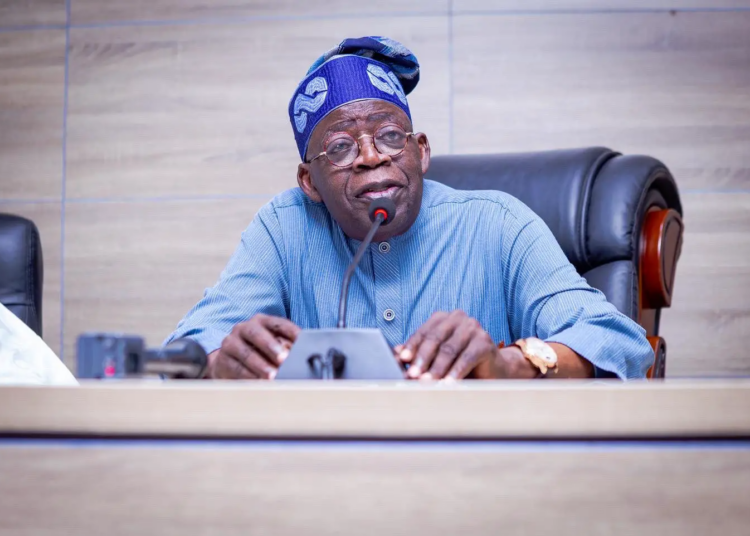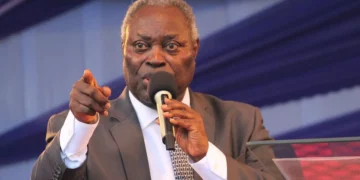Alot of governance attention has remained stiffly on the subsidy removal policy since President Bola Ahmed Tinubu took over on 29th May,2023. Like joke, the president has religiously owned up to responsibility and is working to see that the policy does not cause harm than the good it was intended to achieve. Many positions were canvassed by many on the issue but the central major take home is that fact that 99 % of people are in support of subsidy withdrawal especially here in Nigeria,but the only argument is when it’s ripe to do so.
The policy decision has reverberated across almost all critical sectors of the socio- economy. This week, MELTING POINT bring to fore a sectoral analysis and individual opinion of one of the nation’s major stakeholders for scrutiny.
Hon Ayuba Moh Bello is a bussinessman and former Member of the 8th House of Representatives from North East Borno State of Nigeria.
He took time to x-ray the educational aspect of the subsidy policy and made his predictions. He has this to say for your own perusal and analysis.
The Nigerian government introduced an oil subsidy to cushion the effect of rising global oil prices in the 1970s. The Olusegun Obasanjo military regime formalised the subsidy in 1977 when it promulgated the Price Control Act which regulated prices of items including fuel.
Scrapping the fuel subsidy was among the top reforms that Tinubu promised during the presidential election campaign.
When president Tinubu announced the decision of removal of subsidy payment on premium motor spirit PMS on May 29th, he said his decision to remove a popular petrol subsidy would impose an extra burden on citizens.
In my effort to X ray part of the policy statement on subsidy removal, I realized that , he said the policy would free money for:
- Education;
- power supply;
- Transport infrastructure ; and
- Health care.
Perhaps, it’s very important to note that, President Buhari rode into power in 2015 based on the promise to fight corruption, insecurity and to provide infrastructure. At the end, he exhausted 8 good years with little to write home about his achievements in the areas of fighting corruption and insecurity. The only area that he performed little above average is, in provision of transport infrastructure, noticeably in railways and 2nd Niger bridge specifically among other projects. And even that was made achievable because most of the projects were inherited by him halfway from the previous administration.
In light of the above, though president Bola Adekunle Ahmed Tinubu is said to be prepared for the job before becoming president, I think, it may be difficult for him too, to record high achievement in all the areas he is insinuating to use the proceeds of the fuel subsidy removal as he declared in his first public comment on Democracy day, 2023 that, Nigerians would see the benefit in Education, steady power supply, transportation infrastructure and healthcare.
The result of my X ray, convinced me that, he may perform marginally better in Transport infrastructure but not in all the areas he insinuating, reason being that, like his predecessor, who Inherited the Transport infrastructure projects from the previous government, a scenario that propelled him to perform little above average, he too, would be able to perform in the Transport infrastructure development to a reasonable extent. But I doubt if, he can surpass his predecessor in Education and Health Sector.
One would be tempted to ask and to know my reasons for making such rough statements. The reason is not far fetched from the fact that, he too, is doubtful of what he said, because he did not give a timeline of when this would happen.
He has 4 or 8 year as the case may be in the constitutional life span of his tenure. In these periods, the last two years of his first tenure is mainly going to be consumed by campaign for his reelection, so is the last 2 years of his 2nd tenure as the case may be. The only difference is going to be that, the campaign is for his preferred successor.
In short, he has solid 4 years uninterrupted dedicated for achieving his promise.
Nevertheless, let for instance, give a partial X ray to Education as one of the areas he said, Nigerians would see the benefit of subsidy removed on PMS.
Subsidy payments is said to have consumed more than 11 trillions every year, thereby creating budget deficits which left us with an option for seeking for Loans to fund the deficit every year.
Ideally, it is expected that when he made the statement that Nigerians would see the benefit of the subsidy removal in Education as one of the areas that would enjoy the benefit of subsidy removal, he is also expected to inform the public on which particular area of education sector will enjoy most.
Instead, he came up with certain ideas and laws that looks like a contradiction to his Democracy day statement on Education.
He signed into law student Loan Bill which was brought to the 8th National Assembly and was thrown away due to the fact that the Bill was subjected to a careful legislative scrutiny and found out that the Bill was anti people and anti education. I was a Member of the House then.
Perhaps, because, the sponsor of the Bill later became the Speaker of the 9th House of representatives, he later brought the bill to the floor of 9th Assembly and influenced its passage and its signings into Law owing to his relationship with Mr. President.
Another reason why I made the rough statement is that, president Tinubu said that, Federal government can no longer be able to fund public universities. The implementation of which is that, the little subsidy enjoyed by students of tertiary institutions is also removed.
He made a commitment in his first Public Address to the people of Nigeria that, the benefit of fuel subsidy removal would be reflected in education among other things but still contradicted himself by removing subsidy on universities which is one of the most important realm in the education sector.
Time will not permit me to keep itemising some of these contradictions. But in a nutshell, I wish to conclude by advising that, this fire brigade approach to policy statement and issuance needs to be given a serious rethink.
He cannot and will never impress who ever he wants to impress. He should know that, Nigeria is still a mixed economy which is still expected to give its people some little sense of welfare, especially, in education more especially, university education. So while exercising the will of Capitalism, a little bit of socialism is required to add a spice to the dish.
We’ve got the edge. Get real-time reports, breaking scoops, and exclusive angles delivered straight to your phone. Don’t settle for stale news. Join LEADERSHIP NEWS on WhatsApp for 24/7 updates →
Join Our WhatsApp Channel










